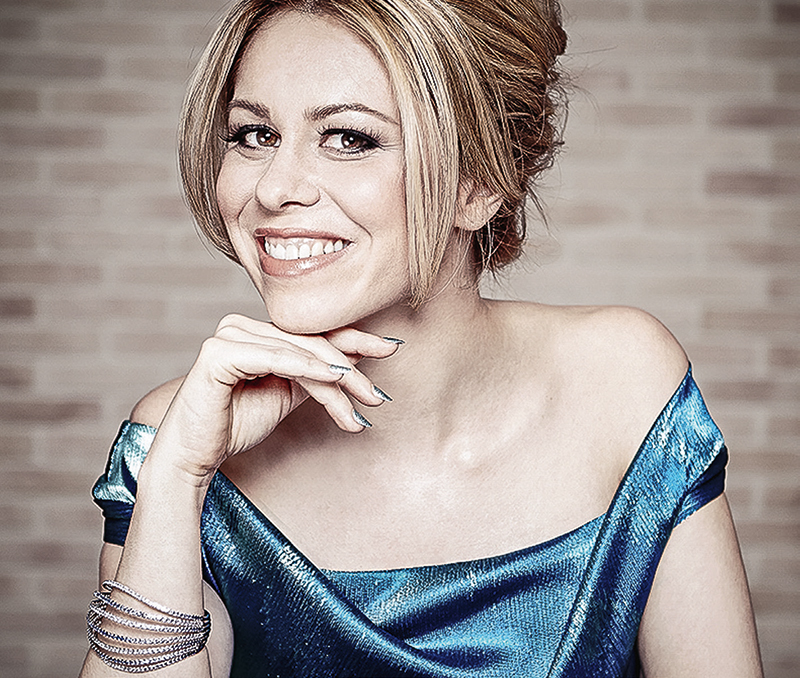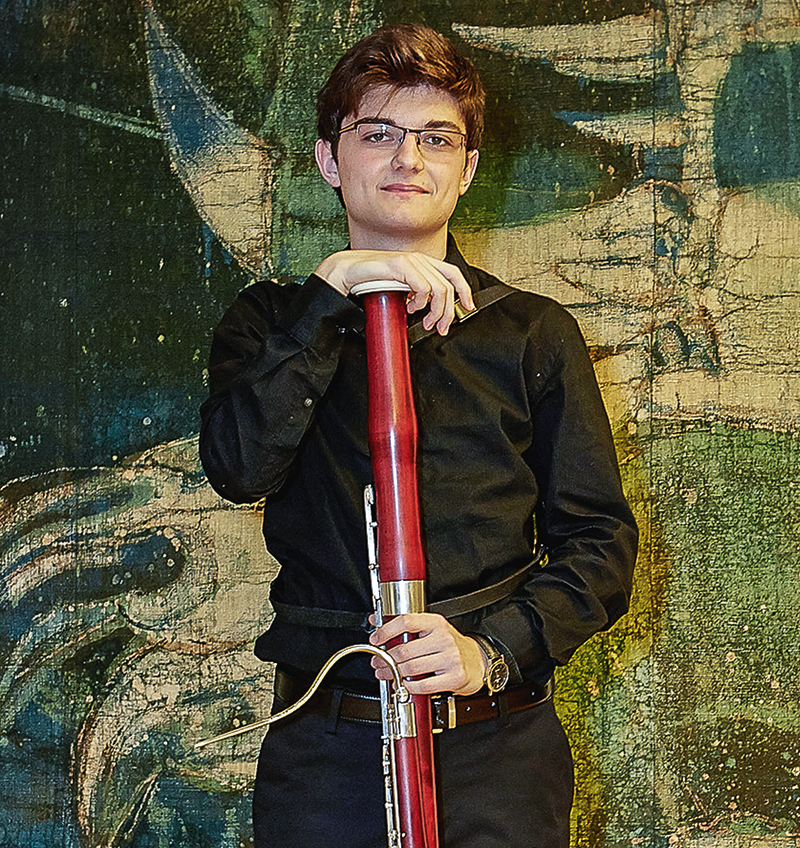The places where students and graduates of the mdw end up are every bit as diverse as their reasons for studying here. In the following, two graduates and a current student tell the mdw Magazine about their time at the mdw, how they deal with setbacks, and what success means to them personally.

Soprano Daniela Fally studied voice with a focus on opera at the mdw until 2005. The Lower Austrian also completed three further courses of study. Her theatre studies degree, training as a musical performer, and training as an actor were part of a Plan B which, so far, hasn’t been necessary. A certain security in life has always been important to her: “Success in the arts can often depend on simply getting lucky,” is how she explains her constant drive to work hard and continually add to her skills. It’s difficult to find a measure of success. For Fally, it has to do above all with a feeling of happiness that can’t be objectively measured. “If I’m doing something where I don’t notice how time is flying by, and if I get up each morning fresh, cheerful, and motivated, that’s how I know that I’m doing what’s right for me.”
Though the young soprano has luckily been spared any major setbacks so far, she views such things more as challenges for which solutions need to be found. “I’m pretty pig-headed. When I want something, I fight for it.” Her talent might have gone undiscovered if it hadn’t been for the music school in her home community. “Places of basic education are extremely important, and I do a lot to support them.”
The young mother has fond memories of her time at the mdw. She describes it as a privilege to have been able to acquire such well-founded knowledge and to work in such attractive venues as Schlosstheater Schönbrunn. Although she often complained back in her student days, she now says that she was “a truly blessed young person with the best prospects of being able to survive well in the real world of arts and culture.”
Bernhard Kerres can already look back on a variety-packed career—from the operatic stage to the executive boardroom, and from the artistic director’s chair to start-ups. He didn’t finish his voice degree, for which he studied at the mdw from 1987 to 1992, but it did teach him much that would serve him well later on. “Above all, I learned how to work in a disciplined and consistent way, which is indispensable for those aiming to have musical careers,” says Kerres. As voice students, he and his colleagues enjoyed “the great luxury of our little world” at the Department of Voice and Music Theatre in Penzing. In hindsight, though, his view on some things is a critical one: “I ask myself whether the focus on musical training limited actual music-making, as well as whether preparation for the business-end of everyday professional life was also neglected.” For Kerres, who is also the founder of Hello Stage, a platform that networks classical artists with agents, promoters, concert organisers, and many others, satisfaction is also an important factor. A further central point is to know one’s own strengths and weaknesses, and to be honest with oneself: “It was also always important to me to listen to my inner voice—which is something I would only really learn as the years went by.” Leonhard Leeb, an author, composer, and trumpet player who has been teaching music management at the mdw for many years, seconds this: “You have to develop a feel for yourself. And to learn to understand and respect others’ contributions in order to put your own doings in perspective and evaluate your own performance as an artist.” Leeb is intimately familiar with the questions that haunt students at arts and music universities, and his lectures are aimed at bringing clarity to various aspects.
Kerres concludes by stating his belief that in order to realise one’s plans, one shouldn’t consider too many alternatives, as these would only distract from one’s true desires.

Raffaele Giannotti, born in Italy in 1995, seems to know exactly what he wants. He’s currently still in the midst of his studies with Richard Galler at the mdw’s Leonard Bernstein Department of Wind and Percussion Instruments. Until recently, Giannotti played in the orchestra of Maggio Musicale in Florence as first bassoonist alongside being a student in Vienna. But then, he won an audition for the Orchestra of the Munich Philharmonic, for which reason he’s recently begun playing there as solo bassoonist. Giannotti compares what’s required of musicians with what athletes do. And on his early love for his instrument, which he’d discovered in a children’s book, he adds: “If it had been up to me, I’d have started playing bassoon when I was three, but of course, I was still too young.” Even so, and motivated by his musical family, he finally did begin learning the bassoon at age ten, and to this day, he considers support from those around him to be enormously important. “Playing in front of an audience is never easy,” he says, addressing the fears with which even talents of his level are confronted. At his young age, Giannotti isn’t yet thinking that much about overall career success; he’s mainly grateful to be able to study in a city like Vienna, surrounded by so many other gifted musicians.

